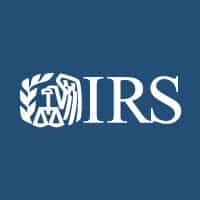
IRS CP14 Notice
This next series of blogs will provide an understanding of some of the various notices the IRS issues to Taxpayers. First on the list is the IRS Amount Due or IRS CP14 Notice. The notice may also be referred to as a “Notice and Demand.” Many IRS tax cases start with an IRS CP14 Notice or amount due notice. It is typically the first notice the IRS sends when a taxpayer files a return with a balance due.
The IRS CP14 Notice functions as one of the first warnings the IRS will give a taxpayer. The notice states a Taxpayer owes a certain amount of tax (including interest and penalties) and will demand payment by a specific date. The notice is called a “Notice and Demand” because the Internal Revenue Code requires the IRS to issue a taxpayer a written notice of tax due and a demand for payment.
Apart from serving as an early warning to taxpayers, the IRS CP14 Notice or IRS Amount Due notice also creates a so-called “invisible lien.” The invisible lien is not a public record and generally has no adverse effect on transactions such as mortgages or secured loans applications initiated by the taxpayer. Even though it is “invisible,” the lien still exists, and it still allows the IRS to collect against those assets the lien attaches. It also allows the IRS to potentially take the next step and file a Notice of Federal Tax Lien (which is a public record and does affect mortgage and other secured loan applications and transactions.)
Best practice should you receive a CP14 notice is to be proactive and address the issue. If you agree with the amount of tax owed and can make the payment, paying the tax, along with any penalty and/or interest owed is the best course of action.
However, if you are unable to pay the tax owed, there are options available to you. These options may include a monthly payment plan or some other type of payment arrangement. The options available to you will depend on several factors, such as how much tax is owed, the type(s) of tax owed, and your personal financial situation.
Each option has its benefits and drawbacks. For example, claiming hardship may delay tax payments or even reduce the amount of tax you ultimately pay, but it may also trigger the Notice of Federal Tax Lien. (As discussed above, a Notice of Federal Tax Lien is a public record and could affect your ability to buy, sell, or refinance property as well as your ability to obtain credit). Claiming hardship may also require a full financial disclosure to the IRS. While making arrangements to promptly pay your tax balance may not result in any tax savings, it could prevent the IRS from filing a Notice of Federal Tax Lien against you.
The attorneys at RJS LAW have helped hundreds of clients navigate and resolve their IRS Collections issues. For a free consultation, please call 619-595-1655 today or contact us via our website at RJS LAW to discuss your IRS CP14 or any other collection notices you may have received.
Written by Joseph Cole, Esq., LL.M.

Leave a Reply